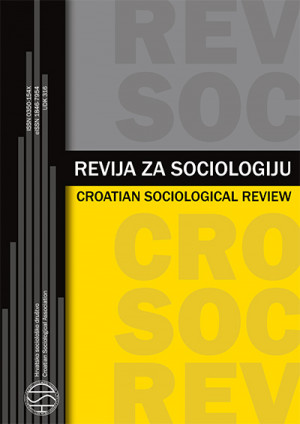Asymmetric Partnership: Migrant Organisations, Trade Unions and the Equality Ombudsman
Asymmetric Partnership: Migrant Organisations, Trade Unions and the Equality Ombudsman
Author(s): Aleksandra Ålund, Nedžad MešićSubject(s): Social Sciences
Published by: Hrvatsko sociološko društvo
Keywords: social movement; labour rights; social inclusion; migrants; anti-discrimination; Equality Ombudsman; trade unions
Summary/Abstract: The study examines civil society agency for social inclusion among Associations Founded on Ethnic Grounds (AFEGs), focusing on their engagement for combating discrimination and enhancing migrant incorporation into the Swedish labour market. The overall rationale of the study investigates the complex institutional conditionality of AFEGs for developing their agency as social movement and civil society actors. The main aim of this study has been to understand how anti-discrimination agencies run by AFEGs, with subsidy support y the state, describe their experiences, and which implications the subsidy may have for the orientation and direction of their actions. The study comprises primarily interviews with anti-discrimination lawyers and heads of two agencies, but also interviews with representatives for the Equality Ombudsman. The greatest challenge for the agencies has been caused by subsidy cutbacks, which have affected both the working conditions of the agencies and other engagements of the AFEGs, such as educational courses among their members, awareness raising concerning the issues of anti-discrimination among different officials, in municipalities, trade unions and among employers. Due to the cutbacks, the civil society actors such as AFEGs have been forced to adapt to market principles by becoming entrepreneurs specialised, in this case, in the field of anti-discrimination law. The study further analyses the effects of this development as well as opportunity structures for collaboration with trade unions and the Equality Ombudsman. Even though these partnerships reveal relational asymmetries, the authors call attention to current and possible future openings in opportunity structures for wider collaboration between AFEGs, trade unions and the Equality Ombudsman.
Journal: Revija za sociologiju
- Issue Year: 41/2011
- Issue No: 1
- Page Range: 51-76
- Page Count: 26
- Language: English

